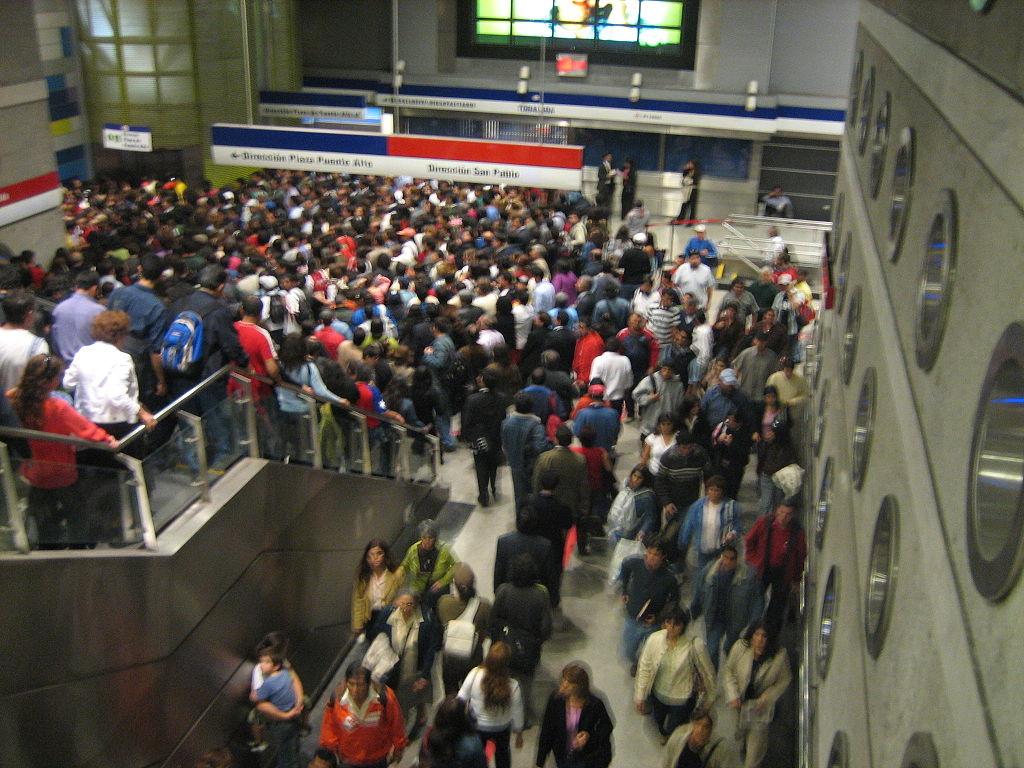Seven Billion People: The Pros and Cons of a Populous Planet
November 3, 2011

Congratulations, fellow homo sapiens! Supposedly, there are now 7,000,000,000 of us, and counting. This milestone is deceptively complex. It’s a very concrete number, seven billion, but in real life, it’s just some abstract concept. The biggest number of people I’ve ever seen at one time is probably something south of 200,000. I have never seen seven billion of anything. I may not be able to imagine the sight of it, but I’m anticipating the feel of it. Seven billion people will have a massive effect on our habitat, and we’re sure to feel the weight of such a number.
The most obvious potential problem with having seven billion people is something every Fordham student experiences on a daily basis: overcrowding. With seven billion people in this world, it’s almost akin to being stuck in a Lowenstein elevator with 30 other people. Plus, these seven billion people are just going to keep growing, so it’s like getting an additional person on that elevator with each floor. And everyone knows how fun that can be.
Especially in cities and developing countries, seven billion means that a person’s space gets cramped. There just isn’t room for seven billion on the 30 percent of our planet that isn’t water.
Fortunately, humans are social animals. We generally like being with each other, even if you’re a grumpy old man and it takes an adventure in your flying house with a chubby boy scout and a talking dog to realize that you still like company. Imagine the amount of parties you can throw now that you’ve got seven billion people at your disposal. The social opportunities for such a number are endless.
Cities feel the problems of large populations more than any other, and they make it known by shoving us in tiny apartment buildings and squeezing us in jam-packed subway cars at rush hour. Now that the world has finally hit seven billion, it’s probably time some of us consider moving elsewhere. But not everyone wants to live in Small Town, USA (or England or France or China). Instead of worrying about politics, maybe governments should try making those small towns more appealing. Add a few more beaches and concert venues, and the loyal city resident may consider the transition. It’s not that hard to build a fake beach if you just ignore the land-locked part.
Comfort levels aren’t the only aspects of life that suffer with overcrowding. Seven billion people means seven billion potential hosts for the next killer virus. So far, modern science has helped us avoid another plague, but too many people still die of preventable diseases like AIDS and malaria. But seven billion also means there are that many more people who can help support the prevention of these diseases. We just need to be aware of the portion of the seven billion who we can’t see but who do need our help.
Then there’s the effect seven billion has on our planet. Seven billion people need clean water, food and energy, not to mention the small percentage of the seven billion that uses much more than we need. Unfortunately, our standard of living incorporates a ridiculously high consumption of resources that could help the underprivileged live one more day. But we are getting better at protecting our environment, and with luck, we’ll have a new wave of green jobs to help us make up for our wasteful ways.
Seven billion also means more people with the power to protect and help others. There are still massive human rights breaches, and we still lose too many lives to resolvable conflicts. Those of the seven billion blessed to live in safety should serve as watchdogs for the rights of those who do not, whether through support of the U.N. or just spreading awareness of international events.
As a species, we’ve done many things right. Obviously, we’re good at procreating. We can also hunt remarkably well, and speech seems to be a human specialty. Human art beats the heck out of anything I’ve seen an elephant do, and I don’t think there’s an insect iPhone yet, so we have technology down. We just have to make sure we’re taking care of this Earth we’re living on. Our record of successes makes me think that we can keep on improving and even make room for the next billion.











